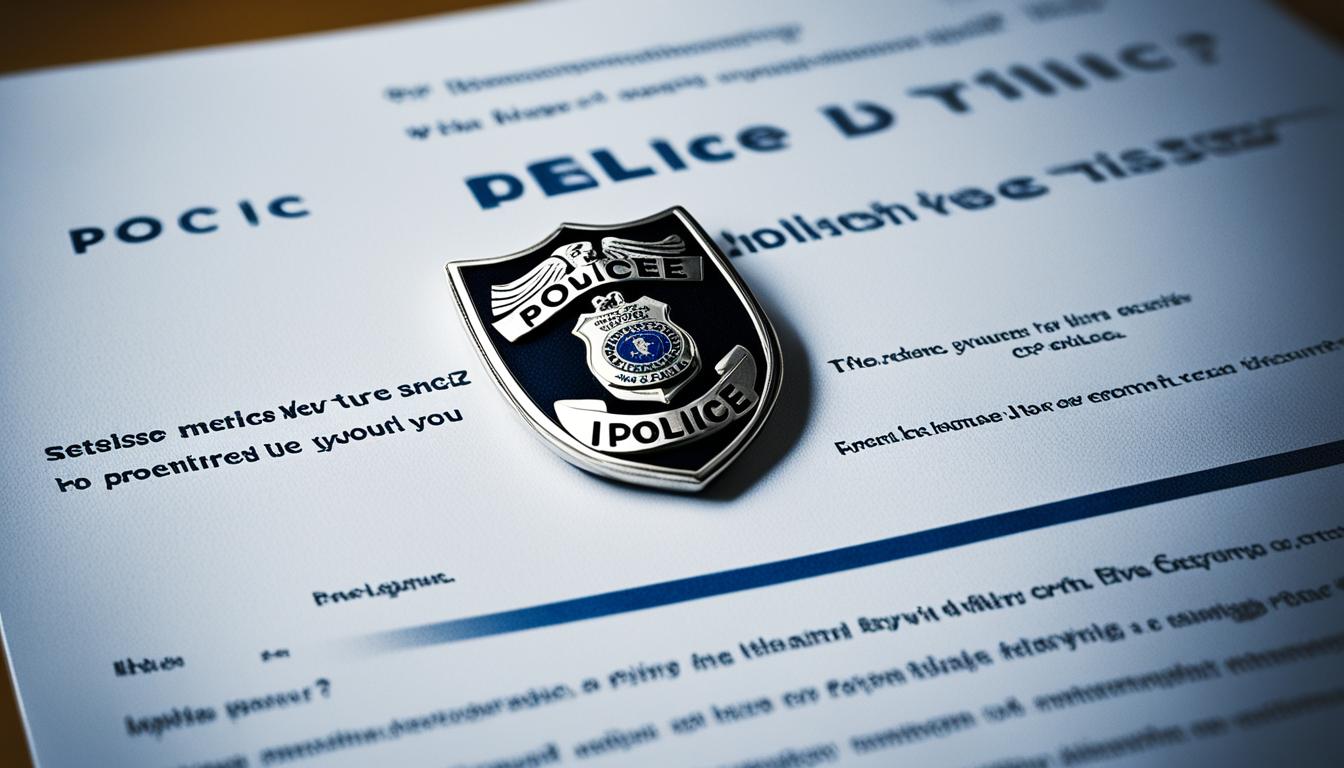Understanding What is an Alibi – Legal Insight
In the legal sense, an alibi is considered as a defense strategy that places the defendant at a different location during the time of the crime, rendering it impossible for them to be the guilty party. Alibis offer various perspectives for psychological research and involve multiple parties such as suspects, alibi witnesses, investigators, jurors, and judges. The field of alibi research is still developing, with an increase in studies focusing on alibi-related memory issues and the appraisal of consistency in alibi accuracy. Establishing a solid alibi can be crucial in proving innocence in criminal cases.
Key Takeaways:
- An alibi is a defense strategy that places the defendant at a different location during the time of the crime, proving their innocence.
- Alibis involve multiple parties such as suspects, alibi witnesses, investigators, jurors, and judges.
- The field of alibi research focuses on memory issues and the appraisal of consistency in alibi accuracy.
- Establishing a solid alibi can be crucial in proving innocence in criminal cases.
- Consulting with a qualified criminal defense lawyer is essential in constructing a successful alibi defense.
Establishing a Solid Alibi
In a criminal case, establishing a solid alibi is a crucial step in defending one’s innocence. It requires careful consideration and meticulous preparation to gather the necessary evidence. As a Canadian, I understand the importance of a strong alibi, which can make all the difference in a legal proceeding.
The first and foremost step in establishing an alibi is to determine whether it is necessary based on the nature of the case and one’s involvement. Consulting with a qualified criminal defense lawyer is essential to assess all legal options and devise the best strategy.
Once it is confirmed that an alibi is needed, the next step is to gather evidence that proves the defendant’s absence from the crime scene at the time of the offense. This evidence can include various forms such as phone records, surveillance footage, eyewitness accounts, or any other credible proof. Documenting everything related to the alibi, including conversations with witnesses and any relevant evidence, is critical for building a strong defense.
Staying informed about state and federal laws related to alibis is also important in constructing a successful alibi defense. By understanding the legal framework, one can ensure that their alibi is presented in a way that complies with all legal requirements and maximizes its impact.

For example, let’s consider a case where an individual is accused of committing a crime at a specific location. To establish a solid alibi, they can provide phone records showing their presence elsewhere during the time of the offense. Additionally, if there were any eyewitnesses who can testify that they were with the defendant at a different location, it would further strengthen the alibi.
By following these steps and utilizing all available resources, individuals can significantly increase their chances of establishing a solid alibi. However, it is crucial to ensure that the alibi is credible and supported by concrete evidence to withstand scrutiny in a court of law.
| Key Steps to Establishing a Solid Alibi |
|---|
| Determine the necessity of an alibi based on the case |
| Consult with a qualified criminal defense lawyer |
| Identify and gather all possible evidence supporting the alibi |
| Document conversations with witnesses and relevant evidence |
| Stay informed about state and federal laws related to alibis |
Alibi in Criminal Investigations
Alibis play a significant role in criminal investigations as they serve the purpose of eliminating possible suspects and establishing the whereabouts of a person at the time of a crime. When presented with an alibi, law enforcement agencies use various tools and techniques to verify its credibility and accuracy.
In order to validate an alibi, investigators rely on concrete evidence such as witness statements, video footage, and corroborating testimonies. True alibis, supported by substantial evidence, are usually easy to verify and can quickly clear a suspect’s name.
However, alibis without concrete evidence can be more challenging to disprove. In such cases, investigators aim to break the alibi by presenting conflicting information or evidence that challenges the subject’s story. By doing so, they hope to identify potential suspects and gather further evidence for the investigation.
Verifying Alibis
In their efforts to verify alibis, investigators follow a systematic approach. They meticulously analyze the provided information, interview witnesses, and examine available physical evidence. Additionally, they may employ specialized investigative techniques, such as:
- Surveillance: Observation of the subject’s movements and interactions.
- Background checks: Reviewing the subject’s personal and financial history for inconsistencies.
- Forensic analysis: Examining forensic evidence for any discrepancies.
By combining these methods, investigators can build a comprehensive understanding of a person’s activities and determine the validity of their alibi.

Breaking an Alibi
When faced with an alibi, investigators aim to challenge its credibility by presenting conflicting evidence. If the subject’s story contradicts the new information, it raises doubts about the validity of their alibi.
In some cases, investigators may introduce false information about the crime or the alibi location to provoke the subject into changing their story. This tactic is often used to test the consistency and accuracy of the alibi in question.
By breaking an alibi, investigators can gather vital clues, identify potential suspects, and further their investigation. It is a crucial step in achieving justice and ensuring a fair resolution to criminal cases.
| Purpose of Alibi | Legal Term |
|---|---|
| Eliminate possible suspects | Exculpatory evidence |
| Establish whereabouts at the time of the crime | Verification of alibi |
| Challenge the credibility of the alibi | Discrediting the alibi |
Breaking an Alibi
Breaking an alibi involves challenging the subject’s story and presenting conflicting evidence. When a person tells the truth, their story remains consistent and they have no place to go in terms of changing their narrative. However, someone who has fabricated a false alibi may struggle to accommodate new information or unknown elements that challenge their story.
Investigators can employ various tactics to break an alibi and uncover the truth. One approach is to present evidence from the crime scene that contradicts the alibi, creating doubt about the subject’s claims. Another strategy is to introduce false information at the alibi location, such as witness testimonials or surveillance footage, which can provoke the person into changing their story.
The acceptance of conflicting evidence by the subject indicates potential involvement in the crime and can lead to further investigation and interrogation. By meticulously scrutinizing the alibi and presenting compelling evidence, investigators can weaken the defendant’s defense and successfully break the alibi.
Methods to Break an Alibi:
- Presenting evidence from the crime scene that contradicts the alibi
- Introducing false information at the alibi location
- Conducting thorough interviews and interrogations
- Gathering witness testimonials and surveillance footage
Breaking an alibi requires careful analysis, investigative skills, and persistence to challenge the subject’s story. It is a critical step in the legal process to unravel the truth and establish the guilt or innocence of the accused.
Importance of a Credible Alibi
The strength and credibility of an alibi can significantly impact the outcome of a criminal case. Alibis serve as powerful defense strategies, providing a solid foundation for proving innocence. Establishing a credible alibi requires careful planning, meticulous preparation, and reliance on concrete evidence.
Consulting with an experienced criminal defense attorney is essential to navigate the complexities of the legal system. They can review the facts of the case, gather relevant evidence, and craft a compelling alibi defense. A skilled attorney understands the intricacies of the legal term “alibi” and can guide individuals in utilizing it effectively to secure their freedom.
Even in cases where a traditional alibi is not available, individuals should not lose hope. A qualified attorney can explore alternative defense strategies, relying on their expertise to challenge the prosecution’s case. Asserting innocence and working closely with legal counsel is crucial in navigating the criminal justice system effectively and striving for a favorable outcome.
- Canada Arrest Protocol: What Police Say Upon Arrest - June 12, 2025
- Can Police Disclose Who Reported You? Find Out Here - June 6, 2025
- 2025 Window Rebates Ontario: How to Save Money While Replacing Windows and Doors - April 24, 2025




















Post Comment